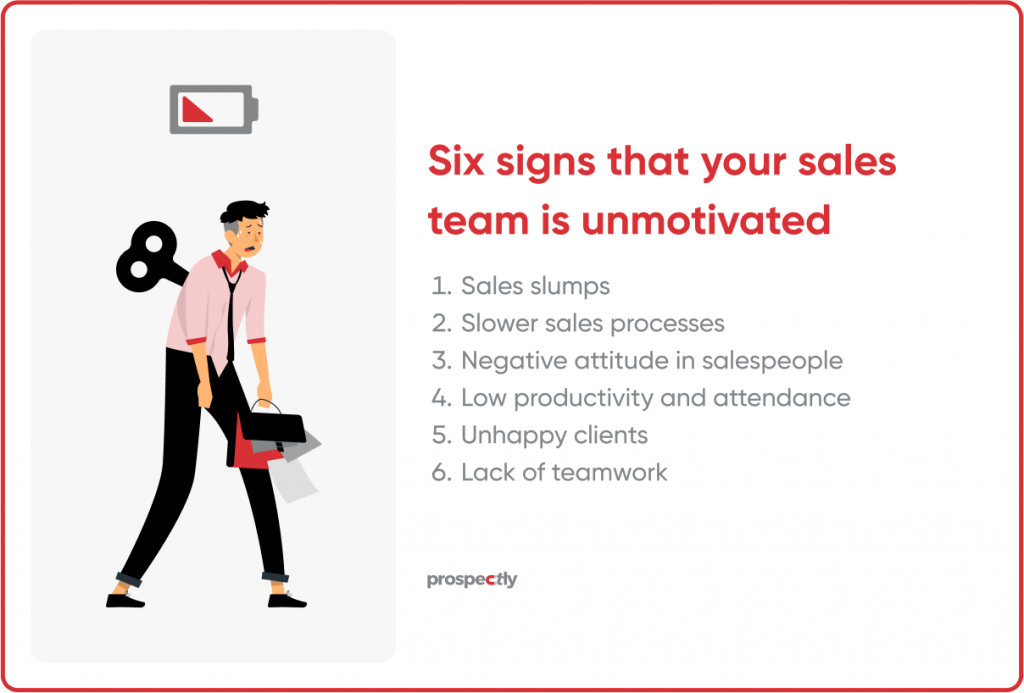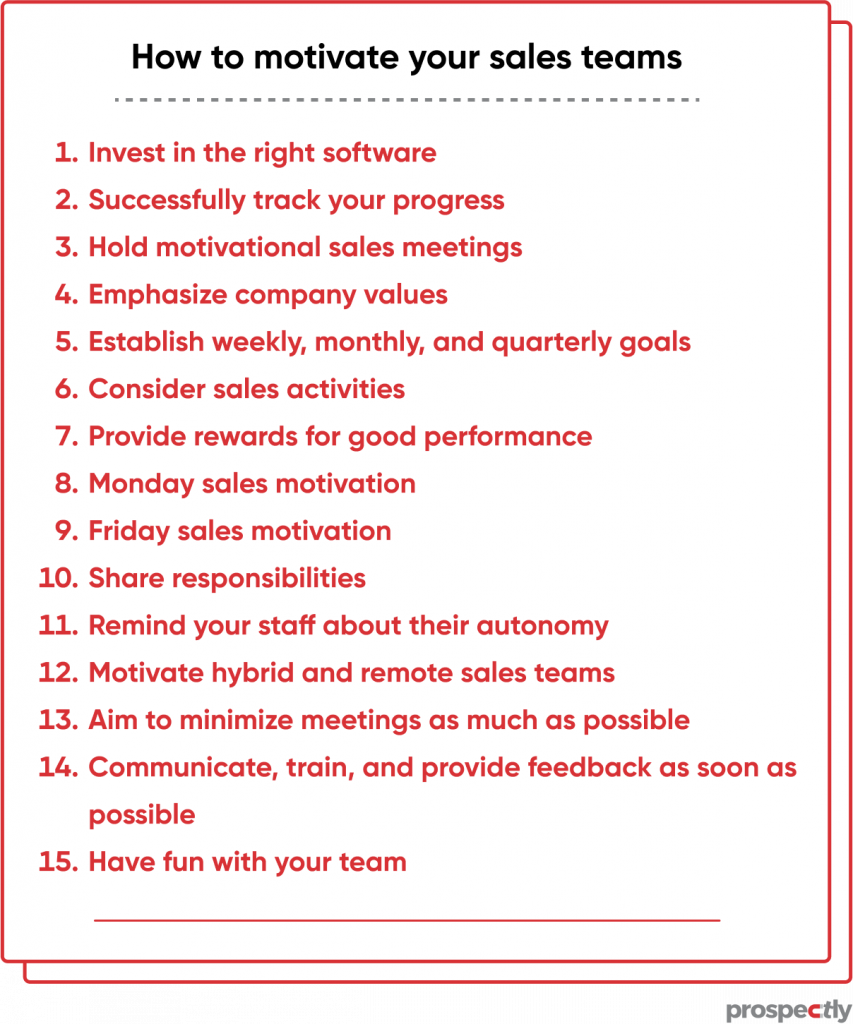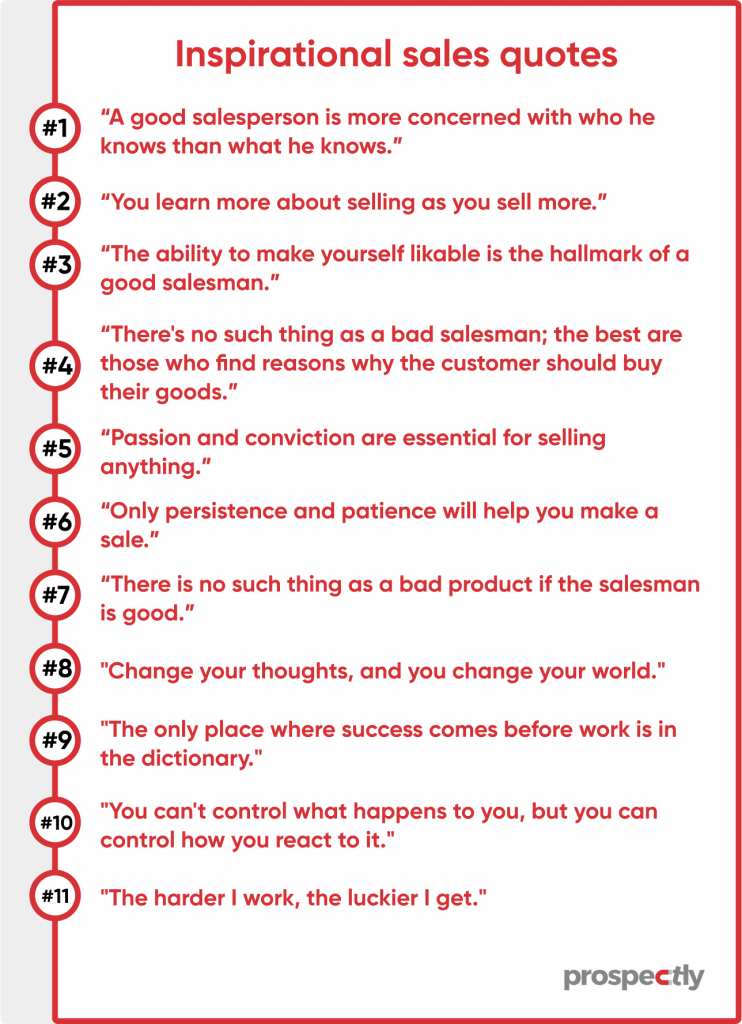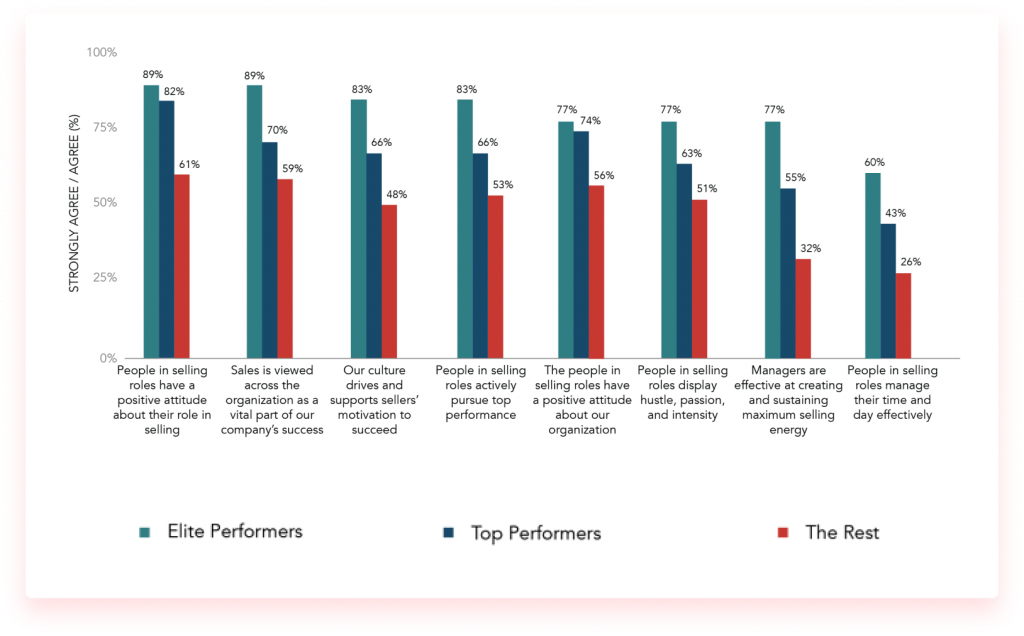The complete guide to understanding sales motivation

Sales motivation is the driving force behind any salesperson. It ignites a fire in the belly, making them work hard and achieve their goals. It’s critical because it influences a seller’s performance. Also, it affects how they interact with customers and communicate with them. In this guide, you’ll discover impactful ways to motivate your sales team. Continue reading.
What is sales motivation?
The term sales motivation or sales drive refers to the feeling or state of mind one has when they are eager to commit to doing something that’ll help them achieve their goals.
Sales motivation is the need to keep going in the face of difficulty. It’s the feeling that’ll sustain you even when things are not accessible. It can be a sense of duty, a sense of purpose, or just the desire to succeed.
Sales motivation may differ for each individual, and it can change over time. For example, when a person starts working in a new job, they may be motivated by the opportunity of earning more money than they used to. Later, they may get inspired by recognition from their boss or coworkers.
What’s the importance of sales motivation in your company?
Sales motivation stimulates, arouses, and directs a salesperson’s energy and emotions to action. Salespeople need plenty of incentives to find the best ways to close deals and maintain customer relationships. They’re human beings, so they need to feel motivated to do their job well.
Types of motivation
What motivates a salesperson the most? There are two types of motivation: intrinsic and extrinsic motivation.

However, extrinsic motivation involves external factors, such as money and the desire to boost your commissions or bonus. As a sales manager, you should focus on the two forms of sales motivation as they contribute various factors that drive sellers to hit sales goals.

How can you know if your salesforce lacks motivation? Check out the following warning signs.
Six signs that your sales team is unmotivated

1. The sales aren’t coming in
Low or poor sales show that your salesforce cannot meet your sales targets. Your sales team suffers from low motivation-it’s not at its best performance.
2. Sales are taking longer than expected
Your sales reps can initiate conversations with prospects and even schedule meetings with them. But they develop cold feet to lead the potential customer to the closing stage. Sellers stop persuading them to buy- one sure sign of demotivation.
3. They display a negative attitude
Excuses galore. Salespeople avoid taking accountability for low performance – they make lame excuses. And they say negative things about the business itself or the leaders.
4. Productivity and attendance at the workplace are low
Constant low productivity and absenteeism from work are telltale signs that the sales engine isn’t firing from all cylinders. The salesforce may even display boredom with their work while on duty. Their body language shows a discouraged sales team.
5. Clients have specifically brought it up
Your clients can see the lack of zeal and enthusiasm in your employees. And when they inform you about it, it’s a genuine warning that the cockpit lacks motivation.
6. Teamwork is lacking
It’s a no-brainer that if one or tw0 salespeople on the team lack motivation, teamwork becomes challenging. Sellers can’t collaborate on anything.
With these matters in mind, how can managers motivate their sellers?
How to motivate your sales teams

Invest in the right software
Equip your sales team with the right technology to perform their roles efficiently and quickly. You can subscribe to or buy sales management tools that allow your reps to collaborate marketing efforts and automate admin tasks. Your sellers can feel motivated when they become good at what they’re doing.
Successfully track your progress
Tracking systems can help you monitor and display your team’s sales performance. For example, use a physical display board to demonstrate and recognize success or milestones visually. It can lead to sales motivation as each seller sees their results or what others have achieved.
Hold motivational sales meetings
Conduct sales meetings every month or quarter to boost your rep’s morale. In these sessions, you can talk about their achievements, tactical changes, new products, etc. Also, share info on sales lead opportunities, regional sales, and recent developments in the sector.
Motivational sales meetings offer opportunities to say kudos to top performers and those whose performance is getting better. Use these forums to encourage your team to keep pushing.
Emphasize company values
Inspire your salespeople by informing them about your company values, mission, and overall objectives. It helps them align their personal goals with what your business wants to achieve. Also, sellers can know what they need to do to be part of your business’s success. Use meetings to re-emphasize these matters and explain how your team can meet the strategic goals.
Establish weekly, monthly, and quarterly goals
Work with your team to set clear and specific weekly, monthly, and quarterly goals. Try to establish high sales goals in busy times, like the public holidays when people tend to spend more. Again, break down the targets into daily tasks to make them manageable and achievable. Reasonable goal-setting can be a source of motivation.
Consider sales activities
Earlier, we mentioned that realistic and measurable sales goals could inspire your salesforce. But sales results can be challenging to achieve. Instead, focus more on sales activities because reps can control them. E.g., they can decide on the number of sales calls, schedules meetings, demos, etc.
Provide rewards for good performance
It’s a brilliant company practice to recognize outstanding performance when your salesforce has made sales. That’s because securing deals is challenging in a stiff business environment. So, offer your team financial and non-financial rewards to spur them on. Examples of non-cash sales incentives include weekend or holiday breaks, vouchers, etc.
Monday sales motivation
Take advantage of Mondays to inject a huge amount of motivation into your salespeople. Before they launch out into their sales field, hold a brief meeting to say one or two words of inspiration. Remind them that maintaining the right mindset can succeed against all odds.
Friday sales motivation
Salespeople are likely to lose focus on Friday due to the upcoming weekend. They can lose momentum and become unproductive. Do your best to motivate them on this particular day, and if possible, give them a day off. It allows them to rest and recharge for the following day.
Share responsibilities
A rigid relationship with your employees can create a sense of aloofness and the bystander effect. When they feel that they’ve no part in making big decisions for your company, they become onlookers. By delegating challenging tasks to your reps or new team leaders, you can avoid this. Involve them in all your marketing efforts to encourage a sense of ownership.
Remind your staff about their autonomy
It might seem an obvious thing that sellers understand that they’re independent. But you may be surprised that they’re not entirely using their freedoms in their work. Find out if your sellers are taking advantage of this autonomy.
Motivate hybrid and remote sales teams
Inside sales teams working remotely also need constant motivation. That’s because face-to-face sales meetings are a challenge to implement. Sales leaders can use team engagement tools to develop a sense of community and belonging. You can produce and share a 90-second video regularly with individuals and the entire team.
Aim to minimize meetings as much as possible
Regular sales meetings are fine, but they can lose purpose if they become endless. Also, salespeople can be overwhelmed and develop a negative attitude. Try to have a few structured meetings to give your team a breather.
Communicate, train, and provide feedback as soon as possible
Communication is vital in sales motivation and managing a team. Give immediate feedback if you notice that a rep faces challenges meeting their goals. Create a personalized training program if the same problems keep cropping up. Or give the salesperson a day off to reflect and refocus.
Related: “Turn your sales coaching into a high-performing machine.”
Have fun with your team
Sometimes too much seriousness at work can be stressful-all work, and no play makes Jack a dull boy. It’s an old saying, but still relevant. As a sales manager, you can g0 to the gym with some reps, attend a sports game, or watch a movie together. Find something fun to build and strengthen relationships and allow the salesforce to relax and unwind.
Energize your sales drive with these inspirational quotes
What do you say to motivate a sales team? Sales motivational quotes are quotes that inspire salespeople to do their best. You can use them in various contexts, from presentations to emails to social media posts.
Here are 11 potent sales motivational quotes to inspire your salespeople.

Use the following ways to share the inspirational sayings with reps.
- Send an email every day.
- Publish on the company intranet
- Share daily in a meeting.
- Create a whiteboard for your company
- Put them up in the staff lounge or where the ‘water cooler’ conversations occur.
Let’s wrap up by diving into other critical aspects that affect sales motivation.
Key influences of motivation
According to RAIN Group, sales managers need to consider five primary areas that influence motivation within a company. See the elements below.
Culture and company
Promote a supportive environment for sellers to thrive. Salespeople can succeed when company culture gives them as much encouragement and help as possible. Be available when your sales reps need you and resource them with the necessary tools to achieve their goals.
Management
Management plays a critical role in helping sellers discover and develop their potential. Coach and mentor your team. RAIN Group’s research shows that Elite Performers are “more than 2x as likely to have managers who motivate sellers.”
Intrinsic motivators
Money may not be the only thing that drives your salespeople to crush their numbers. You can try factors like public recognition, winning, career development, etc. RAIN Group says, “when you know what motivates any one individual person, you can focus on drawing that motivation out on a regular basis.”
Execution
Earlier, we said that sellers need supportive management to execute their plans successfully. But unless they’ve got the self-drive and enthusiasm to excel, achieving their sales goals can be an uphill task. Inform your salesforce that they need to develop a winning attitude towards their work.
Value
RAIN Group discovered in one study that companies that emphasize offering value for their customers have super motivated sellers. “Companies that have a true focus on value for buyers are much more likely to have highly motivated sales forces.”
Check out the following aspects that Elite and Top performers consider a top priority in sales motivation.

Final thoughts
Sales motivation is a critical factor in salespeople’s success, and it’s the fuel that drives them to achieve their goals. Sales motivation falls into two types – intrinsic and extrinsic.
Inherent inspiration or internal motivation comes from within the individual and involves personal values, interests, needs, desires, or intentions. Extrinsic or external motivation comes from outside an individual and consists of rewards for meeting a specific goal.
To get motivated for sales, you need to find what motivates you intrinsically and extrinsically. It’ll help you find your drive to push you towards success in your sales career.
Related: “How to cope with sales burnout.”


